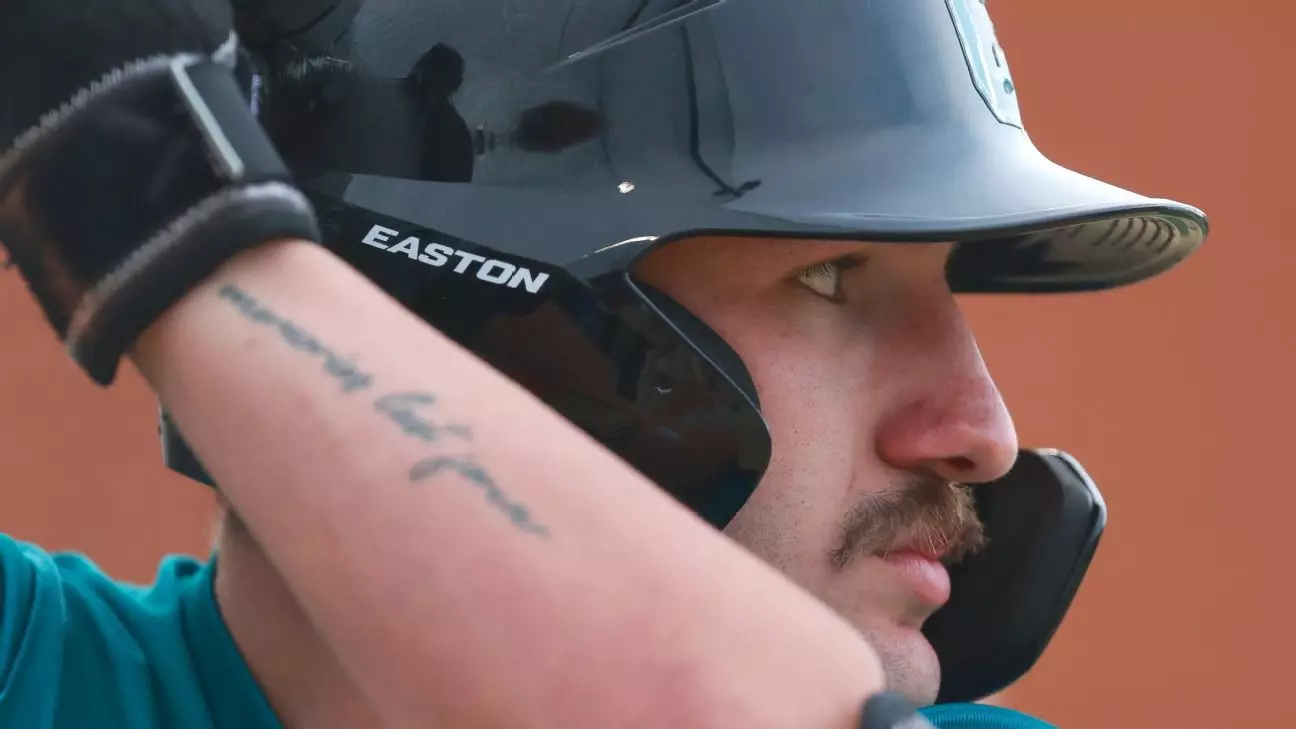In the competitive world of baseball, controversies can erupt with a rapidity that echoes the crack of a bat. The saga of Derek Bender, a former catcher for the Minnesota Twins’ minor league system, has caught the attention of fans and critics alike. Accused of divulging pitch information to opponents, Bender faces serious allegations that may permanently impact his professional journey. As he navigates this complex predicament, his claims, denials, and the broader implications of the situation unfold, drawing attention to ethics in sports and the intense pressures faced by players.
Derek Bender’s troubles began during a doubleheader on September 6, when he allegedly informed hitters from the Lakeland Flying Tigers about upcoming pitches thrown by his team’s starter, Ross Dunn. This seemingly small act is magnified into a significant breach of the unspoken rules of fair play in baseball. As the Flying Tigers clinched a crucial victory that ultimately eliminated the Fort Myers Mighty Mussels from playoff contention, whispers of Bender’s actions reached the ears of his coaches, leading to an investigation by Major League Baseball (MLB).
From the outset, baseball has maintained a strict code of conduct regarding competitive integrity, and the ramifications of such allegations can be far-reaching. Bender’s denial, as conveyed in an interview with The Athletic, positions him against a backdrop of suspicion and uncertainty. He professes to have never intended to give the opposing team an advantage, stating emphatically, “I never gave pitches away. I never tried to give the opposing team an advantage against my own team.” This claim, however, has sparked considerable debate among players, coaches, and fans, all of whom are invested in the preservation of fair play within the sport.
Bender’s response to the allegations reveals the psychological toll that such accusations can inflict on young athletes. He mentioned experiencing threats and derogatory comments, prompting him to retreat from social media to preserve his mental well-being. This turbulent chapter brings to light the darker side of professional sports—a world where public perception can turn hostile in an instant.
The emotional weight is further compounded by the strained relationships with former teammates. Bender indicated feeling isolated, as even his friendships came under scrutiny. “It’s hard to hear,” he expressed, acknowledging the painful fallout from the scandal. Such personal ramifications underscore the precarious nature of a career in professional sports, where a single moment can alter a player’s trajectory significantly.
Despite the challenges, Bender has expressed a determination to reclaim control over his narrative. With the MLB investigation still open, he finds himself in limbo, but he plans to join the Brockton Rox in the independent Frontier League. His willingness to continue playing underlines a resilience that many younger players may lack when faced with adversity.
Interestingly, while the Twins organization offered a potential pathway back if he confessed to the accusations, Bender’s response indicates a steadfast commitment to his character. “The only thing I had left was my character at that point,” he reflected. This insightful commentary on personal integrity touches on broader themes in sports about accountability and redemption.
Bender’s decisions and the consequences they carry highlight the complex interplay between personal ethics and professional obligations. His acknowledgment of an apology—albeit vague—shows an awareness of the implications his actions might have had, even if he maintains his innocence. The reality of professional sports often hinges on perception, and navigating that terrain can sometimes prove just as challenging as the game itself.
As he embarks on a new phase of his career, Bender exemplifies the struggles many athletes face in preserving their integrity while seeking opportunities. The world of sports is ruthlessly competitive, and accusations like those levied against him can serve as harsh wake-up calls. Bender’s proclamation of controlling his narrative serves both as a personal mantra and a lesson for others—once the game is over, it’s how an athlete chooses to move forward that matters most.
Ultimately, Derek Bender’s experience at the crossroads of integrity and ambition reflects a larger narrative within athletics. The expectations placed on young athletes are immense, and the pressure to perform can sometimes blur the lines of ethical sport. As he navigates the turbulent aftermath of the allegations, his journey will likely become a case study in resilience and accountability for aspiring players and organizations alike. Whether or not he returns to MLB fame remains uncertain, but one thing is clear: the road ahead will be as critical as the game itself.

